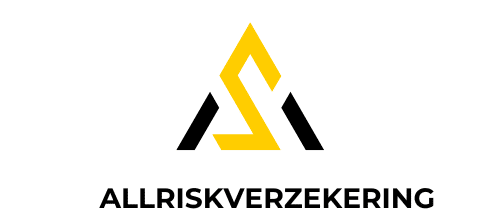In an era where our lives are intertwined with digital technology, there’s no doubt that our smartphones, social media, and screen time have become integral parts of our daily routine. Every day, these devices command our attention, disrupting our sleep cycles, impeding our work productivity, and potentially affecting our mental health. This raises a critical question: Can a digital detox, specifically a smartphone detox, help improve sleep quality and attention span, especially for young adults?
The Impact of Digital Devices on Sleep
Digital devices have become a pivotal part of our lifestyle. It is virtually impossible to find a person who doesn’t spend a good portion of their day staring at a screen, be it for work or leisure. While these devices have made our lives easier in many ways, they also come with a handful of drawbacks, most notably, their impact on our sleep.
In parallel : What Role Can Gene Therapy Play in the Future Treatment of Genetic Heart Diseases?
It is increasingly common for young adults to use their smartphones before bedtime. This habit can interfere with the body’s natural sleep-wake cycle, also known as the circadian rhythm. The blue light emitted by screen devices suppresses the production of melatonin, a hormone that regulates sleep. This can lead to difficulties falling asleep, interrupted sleep, and daytime fatigue.
Additionally, having a smartphone within an arm’s reach during bedtime often results in interrupted sleep. The constant barrage of notifications can wake people up, making it hard for them to fall back asleep. This not only affects the quantity of sleep but also the quality, leading to a perpetual state of sleep deprivation.
Also to read : How Can Peer Support Programs in Schools Promote Mental Wellness Among Adolescents?
The Effect of Smartphones on Attention Span
The ubiquity of smartphones and the constant influx of information they provide have also raised concerns about their impact on our ability to focus. Studies have suggested that excessive smartphone use can lead to a shorter attention span.
In this fast-paced digital age, young adults are exposed to an overwhelming amount of information through their devices. The constant need to stay updated can lead to a compulsive behavior, often termed as ‘phantom vibration syndrome’, where people feel their phone vibrating even when it’s not.
This persistent urge to check notifications disrupts concentration, leading to a decrease in productivity. It also conditions the brain to require constant stimulation, thus reducing the ability to sustain focus on a single task for an extended period.
The Concept of Digital Detox
A digital detox refers to a period of time during which a person refrains from using tech devices such as smartphones, televisions, computers, tablets, and social media sites. This detox aims to reduce stress and focus on real-life social interactions without any digital distractions.
A detox can range from as little as a few hours to as long as several weeks. During this time, people can engage in activities that they may have been neglecting due to their technology use, such as reading a book, going for a walk, or spending time with loved ones.
The Benefits of a Smartphone Detox
A smartphone detox, in particular, can have several benefits. One of the most direct benefits is the improvement in sleep quality. By eliminating the exposure to blue light before bedtime and reducing the chances of being woken up by notifications, a smartphone detox can help establish a healthier sleep cycle.
Furthermore, a smartphone detox can help improve attention span. By reducing the dependence on the device, the brain can relearn to focus on one task for prolonged periods. This can lead to better productivity and a greater sense of accomplishment.
Implementing a Smartphone Detox
Starting a smartphone detox may seem challenging at first, but with a bit of planning and commitment, it can be done. Begin by setting a specific time each day where you will not use your smartphone. You may also consider turning off unnecessary notifications, keeping your phone in another room during bedtime, or using apps that track and limit your screen time.
Remember, the goal of a smartphone detox is not to completely eliminate the use of digital devices, but rather to establish healthier habits and regain control over your digital life. We should strive to use technology as a tool that serves us, not the other way around.
The Connections Between Smartphone Usage, Mental Health, and Wellbeing
The intricate connections between smartphone usage, mental health, and general wellbeing cannot be overlooked. Beyond sleep disturbances and shortened attention span, excessive screen time has been linked to a variety of mental health issues. These include heightened levels of anxiety, depression, and stress, primarily due to the cognitive overload that comes with constant connectivity.
Furthermore, the compulsive checking of notifications, the relentless pursuit of social media updates, and the inability to disconnect from the digital world can also lead to feelings of inadequacy and low self-esteem. In the race to keep up with the Joneses on social media, young adults often compare their lives to the curated, seemingly perfect lives portrayed by others. This comparison trap can significantly affect emotional well-being and overall life satisfaction.
However, the essence of this discussion isn’t to demonize digital devices or social media. Instead, it’s about fostering a healthier relationship with technology, managing screen time effectively, and mitigating the negative impacts of excessive screen usage. This is where the concept of a digital detox comes into play. A digital detox challenge, such as a smartphone detox, can be a powerful tool in addressing these issues, promoting better sleep quality, improved attention span, and improved mental health.
Does A Smartphone Detox Help?
The short answer is, yes. A smartphone detox can indeed be beneficial in breaking the cycle of dependence on digital devices, thereby improving sleep quality, attention span, and overall mental health. A detox can relieve the cognitive overload associated with excessive screen time and constant connectivity.
By going tech-free for a period, individuals can recalibrate their relationship with technology and reclaim control over their digital lives. A device-free environment can foster a sense of calm, allow for more focused attention to tasks, and encourage more meaningful interactions with the physical world.
A smartphone detox also provides an opportunity for young adults to assess their device usage critically, identify unhealthy habits, and implement changes for long-term benefits. It is not about completely dismissing the importance of digital devices in our lives. Instead, it’s about achieving a balance where the digital and physical worlds can co-exist without one overshadowing the other.
Conclusion
In our increasingly digital world, striking a balance between staying connected and preserving our mental health is a tricky, yet crucial endeavor. While digital devices, particularly smartphones, have revolutionized the way we live, work, and communicate, they also pose significant challenges to our sleep quality, attention span, and mental health.
A digital detox, specifically a smartphone detox, presents a feasible solution to these challenges. It encourages young adults to consciously disconnect from their devices, thereby reducing screen time, promoting better sleep, improving attention span, and fostering a healthier relationship with technology. Though initially challenging, the benefits digital detox can provide make it worth considering.
Remember, technology should be our servant, not our master. Let’s embrace digital detoxes not as punitive measures, but as a chance to regain control over our digital lives and cultivate healthier habits that will lead to improved sleep, better focus, and enhanced wellbeing. After all, the purpose is not to abandon technology but to use it in a way that serves us best.
















